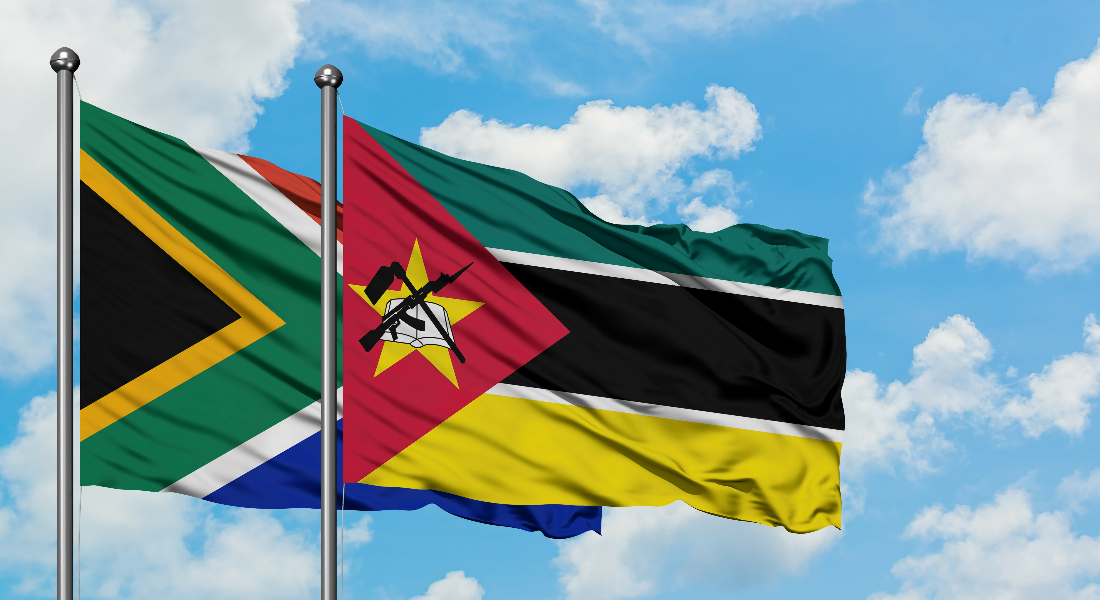
Trademark data reveals South African investment has opened previously closed markets in Mozambique
Due to their geographical proximity and the fact that they share a common border of 493km, the economic and human relations between Mozambique and South Africa date back a long way.
Trade relations between the two countries, in the economic configurations in which they exist today, were established at the end of the 19th century and followed inconstant periods of rapprochement and distance. However, in 1994 two unprecedented events occurred that had a profound impact on societies in both countries: the multi-racial elections in South Africa and the first multi-party elections in Mozambique.
Since then, the two countries have continued to maintain close commercial relationships. South Africa has invested significantly in the Mozambican economy, thanks largely to the fact that Mozambique is an attractive destination for foreign direct investments (FDI). Indeed, in 2011 FDI became the country’s main source of income.
Mozambique is attractive to investors because it is rich in natural resources and has good road, rail and port infrastructures. However, unlike traditional investors, their close proximity means that South African investors can invest in almost all sectors of the Mozambican economy, ranging from banking, brewing, soft drinks, sugar and tourist facilities to large infrastructure projects.
In terms of trademarks, South African applicants own approximately 5,500 national trademarks in Mozambique. They rank second after applicants from the United States, which own approximately 5,850 national trademarks.
Most South African trademarks (11.4%) are applied for or registered in Class 35 and are mostly related to retail and wholesale services. This class is followed by Classes 30 and 29 relating to food products (7.1% and 6%, respectively), Class 36 for insurance and financial services (5.8%) and Class 9 for electrical and scientific devices (5.5%).
"In terms of trademarks, South African applicants own approximately 5,500 national trademarks in Mozambique."
These trademarks are mostly associated with consumer goods and their distribution, illustrating the fact that there are many South African goods in the Mozambican market. This notable presence has been highly beneficial to Mozambique in the sense that it has increased the supply of goods into the country and helped to stabilise prices.
Additionally, these numbers underline the fact that, even though US applicants also largely protect their trademarks in Classes 9, 30 and 35, only South African applicants register significant numbers of trademarks in Class 36 (insurance and financial services). Indeed, unlike traditional investors, South African investors are willing to invest in sectors such as finance, which are avoided by other countries.
While the top South African trademark owners are Edcon Limited, which operates in the clothing industry, the Standard Bank of South Africa Limited, a financial services group, and AfriSam South Africa Proprietary Ltd, a construction materials group, the top US trademark owners are Walmart Stores, Inc, a multinational retail corporation present in Mozambique through its South African company Massmart Holdings Ltd, and two oil companies: Anadarko Petroleum Corporation and Exxon Mobil Corporation.
Clearly, investment from South Africa has opened previously closed markets in Mozambique by securing foreign investment in the country through South African affiliates; Walmart is just one of many examples of this. It is also the main investor in Mozambique outside the oil industry.
Presently, South Africa is by far the biggest trading partner with Mozambique, which benefits both countries. However, this commercial relationship is considered by some economists to be “too close”, in the sense that the Mozambican economy depends largely on South Africa, which could have a negative impact in Mozambique if the country does not improve its economic structure.
This is a co-published article, which was originally published in the World Trademark Review (WTR)
Territory List
There are no results for your search.
- Africa
- Algeria
- Angola
- Benin
- Botswana
- Burkina Faso
- Burundi
- Cameroon
- Cape Verde
- Central African Republic
- Chad
- Comoros
- Congo (Republic)
- Côte d'Ivoire
- Democratic Republic of the Congo
- Djibouti
- Egypt
- Equatorial Guinea
- Eritrea
- Eswatini (Swaziland)
- Ethiopia
- Gabon
- Gambia
- Ghana
- Guinea
- Guinea-Bissau
- Kenya
- Lesotho
- Liberia
- Libya
- Madagascar
- Malawi
- Mali
- Mauritania
- Mauritius
- Mayotte
- Morocco
- Mozambique
- Namibia
- Niger
- Nigeria
- Réunion
- Rwanda
- Sao Tome and Principe
- Senegal
- Seychelles
- Sierra Leone
- Somalia
- South Africa
- South Sudan
- Sudan
- Tanzania (mainland)
- Togo
- Tunisia
- Uganda
- Western Sahara
- Zambia
- Zanzibar
- Zimbabwe
- Africa (OAPI)
- Africa (ARIPO)
- Other
- East Timor
- Macao
- Maldives
- Portugal
- European Patent (EPO)
- European Union Trademark (EUTM)
- International Trademark (Madrid System)
- Patent Cooperation Treaty (PCT)





